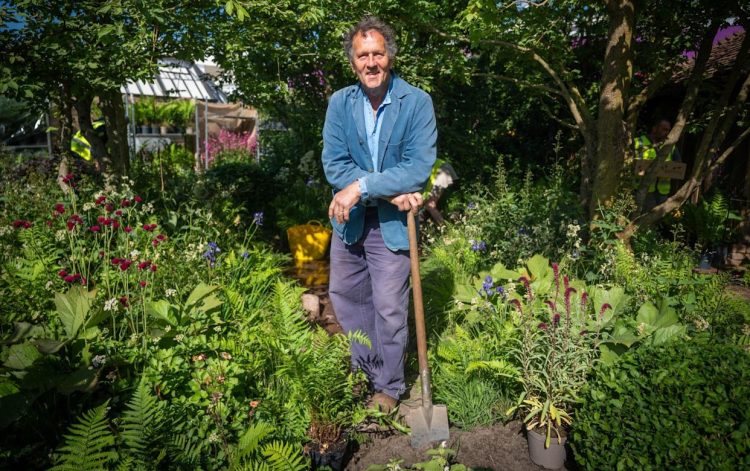Introduction: The Healing Power of Gardening
In recent years, mindful gardening has gained recognition as a potent therapeutic practice that nurtures emotional well-being through direct engagement with nature. Beyond its physical benefits, gardening offers a unique avenue for emotional balance by blending mindfulness techniques with the nurturing of living plants. This practice encourages individuals to slow down, connect with the earth, and cultivate inner peace, fostering resilience against stress, anxiety, and depression. This article explores how mindful gardening serves as a holistic approach to emotional health, supported by scientific research and practical insights.
The Science Behind Gardening and Emotional Health
Gardening’s benefits extend beyond the simple act of planting seeds and tending to flowers; it engages multiple senses and physiological pathways that influence mental health. Interaction with soil, exposure to natural light, and rhythmic physical activity stimulate the production of serotonin and dopamine, neurotransmitters essential for mood regulation. Studies demonstrate that gardening reduces cortisol levels, which are linked to stress, and enhances parasympathetic nervous system activity responsible for relaxation. Furthermore, spending time outdoors in green spaces improves attention restoration and mitigates symptoms of anxiety and depression.
Mindfulness Principles Applied in Gardening
Mindful gardening integrates the core principles of mindfulness — intentional, nonjudgmental awareness of the present moment — into horticultural practices. This involves paying close attention to sensory experiences such as the texture of soil, the scent of flowers, the warmth of sunlight, and the sound of rustling leaves. By fully immersing oneself in the gardening process, distractions and intrusive thoughts are gently set aside, fostering a meditative state. This present-moment focus nurtures emotional regulation by reducing rumination and encouraging acceptance, thereby promoting a calm, centered mind.
Emotional Benefits of Mindful Gardening
Mindful gardening offers numerous emotional benefits that contribute to overall well-being. It helps reduce feelings of loneliness and social isolation by connecting individuals to a larger cycle of life and community, especially when gardening is done in group settings or community gardens. The routine of caring for plants provides a sense of purpose and accomplishment, boosting self-esteem and motivation. Additionally, the slow pace of gardening encourages patience and compassion, both toward oneself and living beings, which can translate into improved emotional resilience.
Gardening as a Stress Reduction Technique
Stress is one of the most common mental health challenges in modern society, and mindful gardening provides an accessible, natural antidote. The repetitive, gentle movements involved in gardening—such as digging, planting, and pruning—act similarly to physical exercise, releasing endorphins and fostering relaxation. Engaging with nature distracts from daily worries and promotes a restorative mental state. Studies comparing gardening to other leisure activities find it particularly effective at lowering stress markers and improving mood, often with longer-lasting effects.
Healing Through Connection to Nature
The concept of biophilia, introduced by biologist Edward O. Wilson, suggests humans have an innate affinity for nature, which is essential for emotional health. Mindful gardening directly nurtures this connection, allowing individuals to experience the cycles of growth, decay, and renewal. This connection promotes feelings of belonging and harmony, which counteract existential anxiety and feelings of disconnection common in urbanized lifestyles. For many, witnessing the life cycles in a garden helps cultivate acceptance of change and impermanence in their own lives.
Practical Techniques for Mindful Gardening
To practice mindful gardening, start by setting clear intentions before entering the garden space. Begin with a few deep breaths to ground yourself, then focus on a specific gardening task with full attention. Use all your senses to engage with the environment: notice the colors and shapes of leaves, the feel of soil grains, the sounds of insects, and the fragrances of plants. When distractions or negative thoughts arise, gently redirect your focus back to the sensory experience without judgment. Incorporating short meditation or gratitude pauses while gardening can deepen emotional benefits.

Mindful Gardening for Different Populations
Mindful gardening is adaptable and beneficial across age groups and clinical populations. For older adults, gardening promotes cognitive function and emotional stability, offering both physical exercise and purposeful activity. Children benefit from developing sensory awareness, patience, and emotional regulation. Mental health professionals increasingly incorporate horticultural therapy, a related modality, in treating depression, PTSD, and substance use disorders. Community gardens serve as inclusive spaces that foster social support and collective healing, bridging individual and communal well-being.
Incorporating Mindful Gardening Into Daily Life
Integrating mindful gardening into everyday routines can be simple and rewarding. For those with limited outdoor space, container gardening or indoor plants offer accessible alternatives. Even small practices like watering plants with intention or observing growth cycles mindfully can enhance emotional awareness. Setting aside regular times for gardening, such as morning or evening sessions, reinforces mindfulness habits and encourages consistency. Combining gardening with journaling or reflective practices further enriches emotional insight and self-understanding.
Challenges and Considerations in Mindful Gardening
While mindful gardening has many benefits, it may present challenges such as physical limitations, environmental constraints, or seasonal changes that affect accessibility. Adapting activities to individual abilities and resources is important for sustained engagement. For some, gardening might initially trigger feelings of frustration or overwhelm, especially if plants struggle to thrive. Embracing imperfection and focusing on the process rather than outcomes is a crucial mindset. When emotional distress is significant, mindful gardening should complement, not replace, professional mental health care.
The Future of Mindful Gardening in Emotional Wellness
As awareness of holistic mental health grows, mindful gardening is poised to become an integral part of wellness programs, therapeutic interventions, and community health initiatives. Advances in technology may offer tools such as virtual reality gardening simulations or apps guiding mindful horticulture practices for those with limited outdoor access. Research continues to explore optimal ways to combine mindfulness and nature-based therapies to maximize emotional benefits. Ultimately, mindful gardening represents a timeless, accessible, and deeply nourishing path to emotional balance in an increasingly digital and stressful world.
Conclusion: Cultivating Emotional Health One Plant at a Time
Mindful gardening beautifully bridges the human need for nature with modern mindfulness practices, offering a holistic, nurturing approach to emotional health. Through sensory engagement, purposeful care, and present-moment awareness, individuals cultivate not only vibrant gardens but also inner harmony, resilience, and emotional clarity. Whether as a daily habit, a therapeutic intervention, or a community activity, mindful gardening invites us to reconnect with the earth and ourselves, fostering lasting emotional balance and well-being.







































